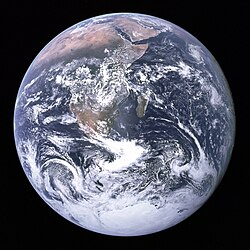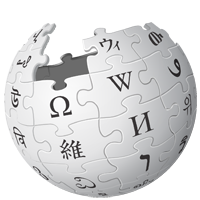Review of The World and Wikipedia
The World and Wikipedia: How We are Editing Reality, by Andrew Dalby, is the closest examination of Wikipedia communities in action yet published. This is both its strength and its weakness: the book offers Wikipedians the chance to learn much about how Wikipedia works across the world, but does little to change our overall understanding of Wikipedia's place in the world. Dalby (User:Andrew Dalby), a contributor to English Wikipedia since 2006 and an administrator on the Latin Wikipedia, tells the story of the project through individual anecdotes and incidents, from the well-known to the trivial. The index of usernames is five-and-a-half columns of small print, from Adamsan to Zscout370.
The first chapter, "Wikipedians at work", might have been the title for the whole book. It dives into Wikipedia culture by looking at how the community—individual editors who spearheaded specific articles—have responded to events such as earthquakes and elections. It attempts to document the building of articles on such arcane topics as bacon in popular culture. This seemingly random 11-page walk from topic to topic admirably captures the spirit of how Wikipedia works.
The second chapter attempts to put Wikipedia into a historical context, as a project at the intersection of three venerable types of reference work: the survey of knowledge along the lines of Pliny the Elder's oeuvre; the dictionary; and the sourcebook, or bibliography. Dalby's brief history of modern encyclopedias and the origins of Wikipedia serves as a good introduction to the history of encyclopedias, although between Andrew Lih's The Wikipedia Revolution and English Wikipedia's own set articles on the topic, it breaks little new ground.
The next five chapters return to the mode of the first: a sort of guided tour through the good and the bad of Wikipedia, with points of interest grouped into chapters by theme: "Why they hate it"; "Why you use it"; "Why we love it" and "Chaos and beyond; or Why we love it, version 2.5"; and "Why you don't trust Wikipedia". Dalby has a knack for making the processes of writing and discussing article content feel lively and interesting; he uses specific examples to show how the community approaches critical issues, without ever straying too far into project space or the abstractions of policy debate and metapedianism.
In the final chapter, "Why you will trust Wikipedia", Dalby gives an optimistic perspective on Wikipedia's increasing role as a news source, and the challenges of reliability and civic responsibility that will have to be overcome as Wikipedia's influence spreads and displaces some traditional information sources. Dalby credits Wikipedia critics for highlighting what society loses by relying on Wikipedia and sources like it, but argues that "With all its dangers, in some ways it will serve us better than its predecessors." Encyclopædia Britannica gave a single perspective on a given topic, and Encarta produced different versions for different national audiences. Wikipedia, in the words of former Britannica editor Robert McHenry, "improved upon the [Encarta] model, by allowing competing "realities" to battle it out right in the text, with all the world watching". McHenry didn't intend that description to be particularly complimentary, but Dalby argues that both within each Wikipedia and through "cross-fertilization" between the languages, this diversity of perspectives is a net strength.
Many of the names and events Dalby explores will be familiar to long-time Wikipedians, although many more will undoubtedly not be. Perhaps the most remarkable achievement of this book is its frequent explorations in other Wikipedias of issues that English Wikipedians are familiar with locally. Dalby, a linguist, pays particular attention to the French Wikipedia, where such issues as user anonymity, the risk of defamation, and the reliability of the text have often played out in quite similar ways to the English Wikipedia. Tales of criticism from article subjects and the media are familiar in theme, if not content, from many of the larger Wikipedias. In The Wikipedia Revolution, Andrew Lih looked at what sets several other Wikipedias apart from the English one; here Dalby does the converse, showing something of a shared culture across many of the larger Wikipedias and their publics—although without much specific analysis of that shared culture and its variations. On the whole, The World and Wikipedia covers much of the same ground as The Wikipedia Revolution, but while Lih is systematic and takes the role of historian and journalist, Dalby is more impressionistic and acts more in the vein of the anthropologist and cultural critic. The result is another worthy addition to the literature on Wikipedia.
- Note: In early November 2009, David Shankbone reviewed this book on his blog: "Review: Historian Andrew Dalby chronicles Wikipedia, its philosophy, people and headlines"




Discuss this story
I think this is a very well-written, thoughtful review. I'm very interested to read the book now. --A. B. (talk • contribs) 15:17, 4 May 2010 (UTC)[reply]